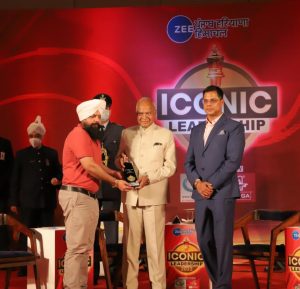Men’s sexual health and fertility are just as important as women’s, especially since more men are choosing to start families in their 30s or later. Unfortunately, a lot of things can affect a man’s fertility, such as his age, lifestyle, stress, diet, and any medical conditions he may have. The first step is to know how sexual health is linked to overall health. The 30s are a very important decade to make healthy choices, whether you want to get pregnant now or just want to keep your fertility and performance for the future.
Here are some in-depth, science-based tips for men to help keep their sexual health and boost their fertility in their 30s.
1. Learn about the Male Fertility Timeline –
Men can technically have kids into their old age, but their fertility starts to go down slowly after age 35. This includes: Less testosterone in the body Less sperm and worse quality Higher chance of sperm having genetic problems More likely to have problems getting an erection Taking action in your 30s can help stop or slow down these effects. Learn Sexual health blog at https://yogisayurveda.com
2. Keep your weight in a healthy range –
Body weight is a big factor in how hormones work. If you are overweight or obese, you are more likely to: Testosterone levels are lower More estrogen being made Lower quality and motility of sperm Advice: Your BMI should be between 18.5 and 24.9. Include a healthy diet and exercise on a regular basis. Don’t go on crash diets or fast for long periods of time, as these can mess with hormones.
3. Foods That Increase Fertility Sexual health and sperm quality are directly impacted by nutrition-
Male reproductive health depends on vitamins and minerals. Important nutrients for male fertility include: Zinc: Promotes sperm and testosterone production. Found in pumpkin seeds, lentils, nuts.
Minerals help men with their sexual health and ability to have children: Zinc: Increases the amount of testosterone and sperm that move around. Selenium is an antioxidant that protects sperm from damage and makes it look better. Magnesium helps keep hormones in check and lowers fertility problems that are caused by stress. Calcium helps sperm move and sends signals for hormones that control reproduction. Iron: It makes the blood flow and oxygen supply to the sexual organs better. Copper and manganese help make hormones and grow sperm.
4. Engage in Regular Exercise
But Use It Sensibly Regular moderate exercise improves blood circulation, raises testosterone, and reduces stress. However, extreme or excessive endurance training (e.g., marathon running or excessive steroid use) can negatively impact libido and sperm count. The best methods: Make an effort to exercise for at least 30 minutes each day. Incorporate both strength and aerobic training. Refrain from overtraining or missing rest days. Avoid anabolic steroids and performance-enhancing drugs.
5. Prevent Exposure to Heat and Toxins
The sensitivity of male fertility to environmental exposures is very high. Refrain from: Extended use of a laptop on the lap Saunas, hot baths, and tight underwear can raise the temperature of the scrotum. Smoking (damages DNA in sperm) Taking too much alcohol Cocaine and marijuana are examples of recreational drugs. exposure to chemicals from industrial chemicals, heavy metals, or pesticides Tip: Opt for breathable, loose underwear, such as cotton boxers.
6. Effectively Managing Stress Long-term stress can lower libido
disrupt testosterone levels, and exacerbate erectile dysfunction (ED). Hormonal changes can also impact sperm quality. Approaches: Take deep breaths, meditate, or practice mindfulness. Make sleep and relaxation a priority. Balance work and life.
If you are in Chandigarh and looking for best Ayurvedic Doctor who can help in this just click:- Google Map link
Best Ayurvedic Product: https://dryogipharma.com









